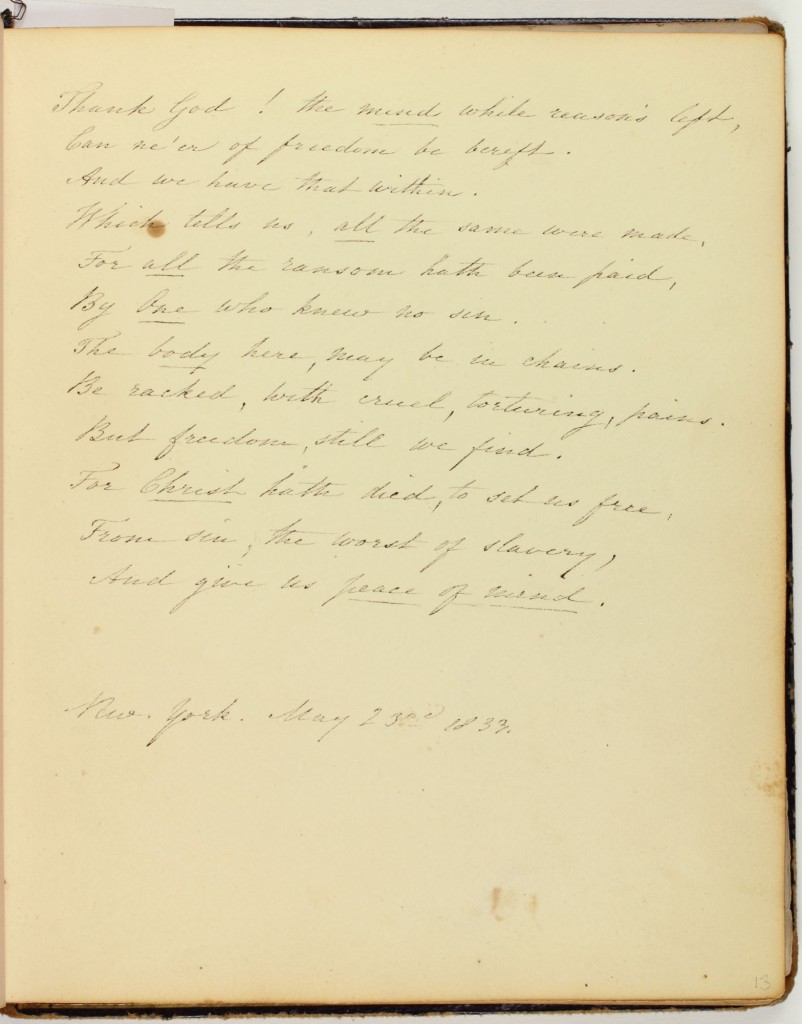Preface (3)
6|7|8|9|10|11-12|13|14|15|16|17|18|19|20|21|22|23|24|25|26|28|30|31|32|33
34|35|36|39|42|44|47|49|51|52|53|54|55|56|57|59|62| 63|64-68|70|73|75

Thank God! the mind while reason’s left,
Can ne’er of freedom be bereft.
And we have that within.
Which tells us, all the same were made,
For all the ransom hath been paid,
By One who knew no sin.
The body here, may be in chains.
Be racked, with cruel, torturing, pains.
But freedom, still we find.
For Christ hath died, to set us free,
From sin, the worst of slavery,
And give us peace of mind.
New York. May 23rd 1833.
This unsigned poem suggests that the author is an individual who sympathizes with or is active in the abolitionist movement. The author alludes to central themes of the movement without explicitly naming it. The principle sentiment of the poem is man is inherently free, though that freedom may only be in his mind. The entry represents three platforms of abolition – politics, religion, and philosophy. Consequently, the author may have included this entry in Cassey’s album because of her active involvement in the abolitionist movement. It could be a poem meant to express solidarity and/or a different rationale of shared beliefs, or was intended as a means to persuade other readers of the album.
